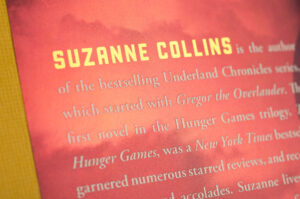Written by Scott Wilson

If you’re thinking seriously about a career in writing, chances are it’s some book you read as a kid that got you started. The first flowering of imagination is a powerful thing, one that stays with us and shapes us through our entire lives. Whether it’s your first encounter with the carefree adventures of Huck Finn along the Mississippi, or solving mysteries with Nancy Drew and the Hardy Boys, the magic of the written word is usually first encountered in a book of young adult fiction. –
Some day you will be old enough to start reading fairy tales again.
~ C.S. Lewis
And, perhaps, writing such tales yourself. Becoming a writer in young adult fiction give you the opportunity to deliver that same dose of magic to a new generation of readers. You have the chance to:
- Spark the imagination and introduce new ideas
- Offer comfort and reassurance through the heavy tides of adolescence
- Explore social conventions and expectations
If young adult fiction writing sounds like fun, it definitely can be. But it’s also serious stuff, a weighty responsibility and a writing challenge that will put you in the ring with historical heavyweights in literature like:
- C.S. Lewis and the Chronicles of Narnia
- Robert Louis Stevenson’s Treasure Island
- Mark Twain’s The Adventures of Tom Sawyer and Adventures of Huckleberry Finn
- Lewis Carroll’s Alice in Wonderland
That’s not company you should join lightly. A college degree in creative writing is one sure way to develop your skills in young adult fiction to go toe-to-toe with the classics of the genre.
What Is Young Adult Fiction?
 Young adult fiction is a genre that is aimed at kids ranging from 12 to 18 years old. But that classification hasn’t kept YA literature out of the hands of adults or off the best-seller lists; J.K. Rowling’s Harry Potter series was so successful that it forced The New York Times to create a separate best-seller’s list for children’s literature to keep the books from dominating the main list, where they had camped out for almost 80 straight weeks.
Young adult fiction is a genre that is aimed at kids ranging from 12 to 18 years old. But that classification hasn’t kept YA literature out of the hands of adults or off the best-seller lists; J.K. Rowling’s Harry Potter series was so successful that it forced The New York Times to create a separate best-seller’s list for children’s literature to keep the books from dominating the main list, where they had camped out for almost 80 straight weeks.
That cross-over appeal mirrors the genre-straddling nature of young adult fiction. Young adult works are never entirely their own thing. Every YA book has another, or several, literary genres that describe it. Harry Potter, for instance, also falls into genres such as:
- Bildungsroman
- Fantasy
- Mystery
- Thriller
- Romance
- Boarding school
The only real difference between works that are set in those genres and young adult fiction in the same categories is the focus and style. Apart from any other genre conventions it may have, young adult fiction is distinguished by:
- Exploring themes and interests common to teenagers
- Writing styles that are accessible to the adolescent age group
Writing for young adults takes exceptional creativity and communication skills. The ability to put yourself in the shoes of kids going through a wide range of challenges and emotions in the process of growing up is a rare one. Knowing what stories will resonate with them, and how to tell those stories in language that young readers will understand, is key to your success in YA fiction.
Young Adult Fiction Writers Deal With Tough Themes
That’s not to say that young adult fiction is simple. In fact, it often deals with weightier themes than works aimed at older audiences. Young adult books have taken on subjects such as:
- Social identity and mental health, as in Sylvia Plath’s The Bell Jar or Susanna Kaysen’s Girl, Interrupted
- Socioeconomic and racial tensions, as explored in S.E. Hinton’s The Outsiders and Rumblefish
- Adolescent angst and alienation, like J.D. Salinger’s The Catcher in the Rye
- Sexuality, as in Judy Blume’s Forever
This can make writing young adult fiction a controversial exercise. It can mirror the struggle between teenagers and parents themselves for control. But the ongoing popularity of those classics shows that good YA writers can tackle even the thorniest subjects in ways that are engaging and useful over the long run.
But many other young adult works are simply about adventure and exploration. Twain’s works of fiction, series like Nancy Drew and the Hardy Boys, or Percy Jackson & the Olympians by Rick Riordan are excellent escapism for bored teens.
New Adult Fiction for More Sophisticated Generations
 Literary genres split, fracture, and are re-invented constantly. Part of the fun of being a creative writer is having the freedom to invent, disregard, or adopt some of those genres as they come into being. And for young adult fiction writers, one of the latest opportunities comes in the form of New Adult fiction.
Literary genres split, fracture, and are re-invented constantly. Part of the fun of being a creative writer is having the freedom to invent, disregard, or adopt some of those genres as they come into being. And for young adult fiction writers, one of the latest opportunities comes in the form of New Adult fiction.
The progression from childhood to adulthood has changed over generations. When Stevenson wrote Treasure Island, for example, most children the age of narrator Jim Hawkins were coming into adulthood, taking on a job and responsibilities. The trappings of modern adolescence (secondary and the option of post-secondary schooling) didn’t exist until the 20th century.
Entering the 21st Century, Millennials and Zoomers have found their adolescence further extended. The early to mid-20s now have their own distinctive developmental stage… one that New Adult fiction caters to.
Aimed at readers between 18 and 29, these works often explore some of the same themes as heavy YA fiction, but also incorporate more mature concerns such as finding and starting new jobs, getting married, or starting new families. If you have stories that seem a little too much for the YA crowd, the New Adult category may have a home for you.
There aren’t clear distinctions between young adult and children’s fiction or between Young Adult and traditional adult fiction in part because there are no such clear distinctions in real life. You’re free to aim your stories at whatever audience you choose. But understanding the tropes and boundaries that publishers and parents place on YA fiction will help you find commercial success.
Young Adult Fiction Writers Will Find a Market for as Long as There Are Young Adults
The great news for anyone interested in writing young adult fiction is that there is never going to be a shortage of young adults coming of age to discover and read your work. Young adult and children’s novels rank 5th highest in sales according to Book Ad Report, and series like Mortal Engines, The Underland Chronicles, or The Hunger Games have been bona fide hits that just keep on coming.
Equally important is the freedom of young adult fiction writers to explore any other genre in their writing that interests them. From science fiction to fantasy to historical fiction to the weighty field of literary fiction, you can stretch your creativity in whatever direction fits you best and still remain firmly in the world of young adult writing.
How Creative Writing Studies Improve Your Skills Writing Young Adult Fiction
 Having the ideas and perspectives it takes to connect with adolescents isn’t enough to be a sure-fire hit in young adult fiction, however. It can take a surprising amount of skill and hard work to communicate your stories and plots in ways that are accessible to younger readers.
Having the ideas and perspectives it takes to connect with adolescents isn’t enough to be a sure-fire hit in young adult fiction, however. It can take a surprising amount of skill and hard work to communicate your stories and plots in ways that are accessible to younger readers.
That’s where a degree in creative writing comes in. From the technical skills of putting clear, straightforward sentences down on paper to the softer skills of exploring publishing opportunities and making connections in the industry, studying creative writing at the college level will build you confidence and competence in YA fiction writing.
Learn How To Create Characters That Resonate With Young Adults
The best books come from someplace deep inside.... Become emotionally involved. If you don't care about your characters, your readers won't either.
~ Judy Blume
Kids are keen lie-detectors. If there’s anything at all inauthentic about any of your characters in a work of YA fiction, they will surely sniff them out and your stories will instantly fall flat.
Creative writing programs can offer you entire classes and workshops on character development. You’ll learn how to get inside your character’s heads, give them the kind of personality that fits their role, and let them live their own lives within your story until they are living, breathing images in your reader’s heads.
Absorb Cultural and Psychological Knowledge To Get Into Your Audiences’ Heads
 Just because you choose to major in creative writing doesn’t mean you will forfeit any of the other traditional advantages of a college education. And in some genres, those advantages are also benefits for your creative writing career.
Just because you choose to major in creative writing doesn’t mean you will forfeit any of the other traditional advantages of a college education. And in some genres, those advantages are also benefits for your creative writing career.
That’s particularly true with young adult fiction and the kind of social studies and humanities courses that you’ll find in most undergraduate studies. By tailoring your general studies requirement properly and picking the right elective courses, you can get a pretty strong layman’s understanding of the psychology of adolescents and the developmental stages of growth.
You’ll also have every opportunity to explore social and cultural developments in different generations, training yourself in the areas of interest that your audience is most likely to have.
Read Across Genres To Expand Your Repertoire of Style and Technique
It’s particularly important for young adult fiction writers to have a wide breadth of experience in reading—not just in other YA works, but across the board in all kinds of genres and formats. That’s not just because young adult fiction can touch on or draw from any of those, but also because they represent the range of human experience and emotion that will infuse your own work.
Creative writing programs are a place where you will definitely be exposed to stacks of new reading. Instructors will assign a vast array of different kinds of material, illustrating good writing and bad, different techniques, and different styles you may draw on. And you’ll read and review writing by fellow students, gaining a keen editorial eye for what works and what does not in creative writing.
Write Volumes To Build Your Hands-on Skills
Not only will you do a lot of reading in a creative writing program, but your writing muscles will get quite a workout as well. You’ll be assigned a variety of different tasks that will stretch your creativity and imagination; short stories, essays, reviews, and pieces of long-form writing that will keep your keyboard humming.
It’s important experience because at the end of the day, writers learn to write by writing. No amount of reading or classroom contemplation can replace the actual exercise of putting words to paper or screen. Creative writing studies bring purpose and accountability to this process, overriding natural procrastination and prevarication.
Learn To Absorb Feedback and Edit for the Best Possible Results
Writing itself is just a part of a feedback loop. Ultimately, readers consume and interpret your work in their own ways. Writing for a young adult audience is particularly sensitive in this respect. You’ll find that everyone has an opinion about your work!
Going through a creative writing program helps you learn how to use and polish feedback on your writing. Both instructors and fellow students will comment on and critique your work. You’ll learn how to edit viciously and prune passages with savage abandon. Even more importantly, you’ll come to see how that process absolutely improves the final product. You’ll graduate from these degrees fully capable of producing consummate jewels of YA fiction with a high chance of catching a publisher’s eye.
Build Your Professional Network and Make Contacts for the Long Term
 Creative writing degrees can also help you get your work in front of the people who have the eyes to catch for publishing deals. There’s a lot of competition in young adult fiction and even the best manuscripts sometimes end up in slush piles.
Creative writing degrees can also help you get your work in front of the people who have the eyes to catch for publishing deals. There’s a lot of competition in young adult fiction and even the best manuscripts sometimes end up in slush piles.
But your instructors and guest lecturers have been in the publishing game for a while and not only have contacts in the industry, but also critical experience on the business side of writing they can pass along. Universities themselves sometimes have relationships with publishers, or publish their own literary magazines in-house. And you’ll make friends and gain colleagues among your fellow students, many of whom will go on to either publication or jobs in the publishing industry themselves and may offer valuable contacts in the future.
All are factors that can up the odds of seeing your name in print after graduation.
Online Creative Writing Programs Deliver Coursework With Flexibility
Online studies are the future of creative writing degrees just as much as they are with other kinds of college programs. The biggest difference is that remote study is a perfect fit for writing degrees.
Whether you are burrowed into your dorm room or sitting comfortably at home halfway across the country from your college, you’re going to spend most of your time on your own reading or writing through these programs anyway.
With modern technology and instant communications, you can turn in your assignments, chat with professors and other students, and research your heart out without ever leaving your bedroom.
If you are someone who finds value in face-to-face conversation and collaboration, however, take heart; even online creative writing degrees often have in-person meetings once a semester or once a year. Sometimes on campus and sometimes in alternate locations, they put you together with your cohort for a week or weekend for workshops, discussions, and uninterrupted focus on the craft of writing.
It’s a perfect compromise that gives you the best of both worlds—the flexibility to read and write in the nooks and crannies of your own daily life, and the chance to absorb lessons and gain insight from the company of others.
Go Back to School at Any Level for Your Young Adult Fiction Creative Writing Education
 Getting that education in creative writing will take you down different paths depending on where you are starting from and what you ultimate goals in writing are. Fortunately, just like your young adult readers, you will find that you have plenty of different options to get the education you need in creative writing.
Getting that education in creative writing will take you down different paths depending on where you are starting from and what you ultimate goals in writing are. Fortunately, just like your young adult readers, you will find that you have plenty of different options to get the education you need in creative writing.
A surge in demand has greatly expanded both the numbers and types of university education programs in creative writing over the past few decades.
That means there is something for everyone, at any stage of their writing career or aspirations.
For high school graduates or anyone coming into the profession of writing without a degree…
Associate and bachelor’s degree programs give you that first stage of university-level education to help you get started. Associate degrees are two-year programs that focus on the basics of the business:
- General education requirements in science, math, English, and social studies
- Touching on story development and other basics of creative writing
- Touching on story development and other basics of creative writing
Associate degrees are also sometimes called transfer degrees since they can count as the first half of a bachelor’s program depending on course content and agreements between schools.
Bachelor’s programs add another two years for the full four-year education that makes them the preferred credential for just about any professional job in America. They come with everything an associate degree offers, plus an extra two years of study that pack in:
- Additional general knowledge and liberal arts courses in a wide range of fields
- More in-depth creative writing courses in plotting, character development, and specific forms of writing
- Additional elective options to specialize in areas of writing by genre or format
For anyone who already has an undergraduate degree, and who may already have started their writing career…
Master’s programs like the MFA (Master of Fine Arts) in Creative Writing takes you to the next level of polish and focus. A master’s degree offers far broader reading exposure and more in-depth, personalize writing assignments and feedback. These degrees come with the best professors, the most personal feedback, and the most interesting guest lecturers to give you the best prospects for professional publication.
Those with a master’s degree in English or creative writing already will find…
Doctoral programs in creative writing are also available. These are most commonly aimed at individuals looking to become professors themselves. They focus more on academic considerations than writing itself, although some do help further develop your manuscripts or other work in progress.
For anyone with a degree in a different field or a writing career outside of young adult fiction…
Take a short, focused certificate program in creative writing is an inexpensive way to re-focus your skills and hone your techniques in very specific genres or areas of writing. Certificates have some of the same coursework and instructors as other writing education, but allow you to tailor your studies only in the areas you need to work on.
With the right imagination and motivation, you won’t have any trouble finding a creative writing program that matches your lifestyle, your finances, and your professional interests as a young adult fiction writer.




